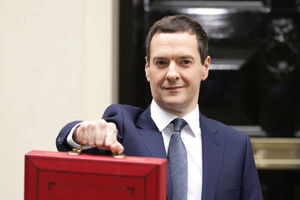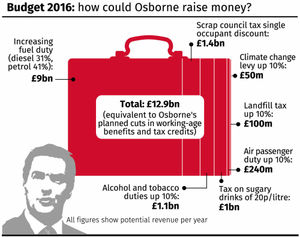Budget 2016: What does it mean for tax and pensions?
Ahead of tomorrow's budget announcement we spoke to a financial expert on how the budget could affect you.

Johnathan Dudley, Midlands managing partner of audit, tax and advisory firm Crowe Clark Whitehill at Oldbury, peers into his crystal ball….
This Chancellor is keen on 'flagship announcements' and is always keen to pull a rabbit out of the hat with a flourish as he comes to the end of his Budget speech. He knows how to court the headline writers.
Two areas where we might see some popular changes could be in personal tax and in pensions.


The spin doctors have already leaked that there won't be the changes to or removal of pension tax relief that had been expected, but the Chancellor could consider relaxing some of the rules for higher earners to enable couples to save more for retirement.
Higher earners are being restricted year on year, and those earning over £150,000 only get tax relief on the first £10,000 of pension contributions per year.
I am sure the restrictions on top rate relief will still come but it would be nice to see a net enhancement by the grossing up of pension contributions for non taxpayers.
Some couples will consist of one high earner and one homemaker. If the high earner has tax relief on contributions restricted to gross contributions of £10,000, then their life partner will come into play for the existing contribution rate without proof of income, currently £3,600.
This £3,600 allowance is not really enough to build up a meaningful fund that provides a decent retirement income that will use up personal allowances.
It would be nice from an equality point of view if this threshold was increased. It would be tax neutral but would give the couple money in retirement as they would both have a taxable income.
On personal tax, we have heard that the personal allowance is widely tipped to increase by more than inflation, but this will increase the 60 per cent band by double this amount.
This band is now getting nearer to the £150,000, 45 per cent tax, threshold, and while I don't expect the 45 per cent tax rate to go – it is too political – the Chancellor might seek to court popularity by increasing the threshold to, say, £165,000.
And if the Chancellor increases the Nil Rate Band, the first £10,600, up to his avowed target of £12,000, will other bands increase accordingly, which similarly could see the £150,000 level rise to £165,000 in any event.
And with one eye on the EU referendum debate, he could look at tax credits for SMEs on export expenditure. Like R&D, he could double relief on expenditure. The current 20 per cent relief isn't enough to incentivise SMEs to make the leap into the uncertainty of exporting.





